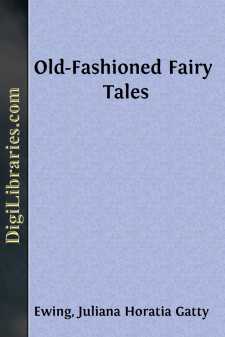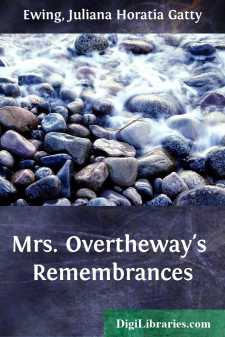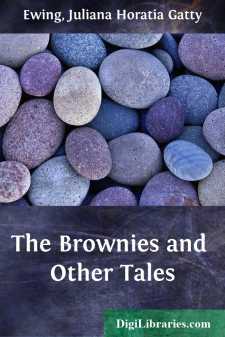Categories
- Antiques & Collectibles 13
- Architecture 36
- Art 48
- Bibles 22
- Biography & Autobiography 816
- Body, Mind & Spirit 145
- Business & Economics 28
- Children's Books 18
- Children's Fiction 14
- Computers 4
- Cooking 94
- Crafts & Hobbies 4
- Drama 346
- Education 58
- Family & Relationships 59
- Fiction 11834
- Foreign Language Study 3
- Games 19
- Gardening 17
- Health & Fitness 34
- History 1378
- House & Home 1
- Humor 147
- Juvenile Fiction 1873
- Juvenile Nonfiction 202
- Language Arts & Disciplines 89
- Law 16
- Literary Collections 686
- Literary Criticism 179
- Mathematics 13
- Medical 41
- Music 40
- Nature 179
- Non-Classifiable 1768
- Performing Arts 7
- Periodicals 1453
- Philosophy 66
- Photography 2
- Poetry 897
- Political Science 203
- Psychology 45
- Reference 154
- Religion 516
- Science 126
- Self-Help 86
- Social Science 82
- Sports & Recreation 34
- Study Aids 3
- Technology & Engineering 59
- Transportation 23
- Travel 463
- True Crime 29
Juliana Horatia Gatty Ewing
Juliana Horatia Gatty Ewing (1841-1885) was an English writer renowned for her children's stories, which often contained elements of fantasy and moral lessons. Her works, including "Jackanapes" and "The Story of a Short Life," are celebrated for their vivid storytelling and deep empathy for young readers. Ewing's literary contributions have left a lasting impact on children's literature, influencing subsequent generations of writers.
Author's Books:
Sort by:
CHAPTER I. “A friend in need is a friend indeed.”—Old Proverb. I have often thought that the biggest bit of good luck (and I was lucky), which befell me on my outset into the world, was that the man I sat next to in the railway carriage was not a rogue. I travelled third class to Liverpool for more than one reason—it was the cheapest way, besides which I did not wish to meet any family...
more...
t was certainly an aggravated offence. It is generally understood in families that "boys will be boys," but there is a limit to the forbearance implied in the extenuating axiom. Master Sam was condemned to the back nursery for the rest of the day. He always had had the knack of breaking his own toys,—he not unfrequently broke other people's; but accidents will happen, and his twin sister...
more...
There was once upon a time a child who had Good Luck for his godfather. "I am not Fortune," said Good Luck to the parents; "I have no gifts to bestow, but whenever he needs help I will be at hand." "Nothing could be better," said the old couple. They were delighted. But what pleases the father often fails to satisfy the son: moreover, every man thinks that he deserves just a...
more...
PREFACE. "Mary's Meadow" first appeared in the numbers of Aunt Judy's Magazine from November 1883 to March 1884. It was the last serial story which Mrs. Ewing wrote, and I believe the subject of it arose from the fact that in 1883, after having spent several years in moving from place to place, she went to live at Villa Ponente, Taunton, where she had a settled home with a garden, and...
more...
IDA.... "Thou shall not lackThe flower that's like thy face, pale Primrose." Cymbeline. The little old lady lived over the way, through a green gate that shut with a click, and up three white steps. Every morning at eight o'clock the church bell chimed for Morning Prayer—chim! chime! chim! chime!—and every morning at eight o'clock the little old lady came down the white...
more...
CHAPTER I. Last noon beheld them full of lusty life, Last eve in Beauty's circle proudly gay, The midnight brought the signal sound of strife, The morn the marshalling in arms--the day Battle's magnificently stern array! The thunder clouds close o'er it, which when rent The earth is covered thick with other clay, Which her own clay shall cover, heaped and...
more...
WE AND THE WORLD. CHAPTER I. “All these common features of English landscape evince a calm and settled security, and hereditary transmission of home-bred virtues and local attachments, that speak deeply and touchingly for the moral character of the nation.”—Washington Irving’s Sketch Book. It was a great saying of my poor mother’s, especially if my father had been out of spirits about the...
more...
THE BROWNIES. A little girl sat sewing and crying on a garden seat. She had fair floating hair, which the breeze blew into her eyes, and between the cloud of hair, and the mist of tears, she could not see her work very clearly. She neither tied up her locks, nor dried her eyes, however; for when one is miserable, one may as well be completely so. "What is the matter?" said the Doctor, who was a...
more...
MARY'S MEADOW. CHAPTER I. Mother is always trying to make us love our neighbors as ourselves. She does so despise us for greediness, or grudging, or snatching, or not sharing what we have got, or taking the best and leaving the rest, or helping ourselves first, or pushing forward, or praising Number One, or being Dogs in the Manger, or anything selfish. And we cannot bear her to despise us! We...
more...
INTRODUCTION. Eleanor and I are subject to fads. Indeed, it is a family failing. (By the family I mean our household, for Eleanor and I are not, even distantly, related.) Life would be comparatively dull, up away here on the moors, without them. Our fads and the boys’ fads are sometimes the same, but oftener distinct. Our present one we would not so much as tell them of on any account; because they...
more...











